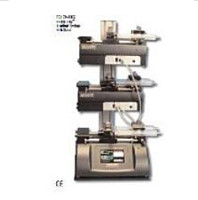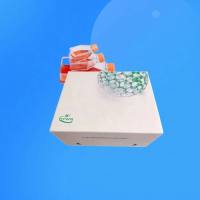Nanoparticle-Mediated Gene Delivery to the Lung
互联网
775
Drug delivery, especially gene delivery to the lung, has been a challenge. Numerous gene delivery systems to the lung have been developed and tested in preclinical studies. However, only a few of them have been successfully tested in the clinic and shown promise. The reasons for failure to translate preclinical findings into clinical setting include inefficient gene delivery, toxicity, stability, and other factors related to scaling and manufacturing of the gene delivery vehicle. Therefore, there is a need for developing and testing of new gene delivery systems that can overcome some of the existing limitations. Preclinical studies from our laboratory using a cationic lipid (1,2-Dioleoyl-3-Trimethylammonium-Propane (DOTAP):cholesterol)-based nanoparticle have shown efficient and effective gene delivery to the lung especially to tumor-bearing lungs of mice. Based on the efficacy and toxicity studies observed in preclinical studies, we have recently initiated a Phase I clinical trial for systemic treatment of non-small cell lung cancer (NSCLC). In this clinical trial, a tumor suppressor gene encapsulated in the lipid-based nanoparticle will be delivered intravenously to determine the maximum-tolerated dose (MTD). The results from this clinical trial will provide a basis for conducting subsequent Phase II trial that will focus on determining toxicity and therapeutic efficacy. In this chapter, the details for the synthesis and testing of the lipid-based nanoparticle for systemic gene delivery to the lung with emphasis on lung cancer is provided.









